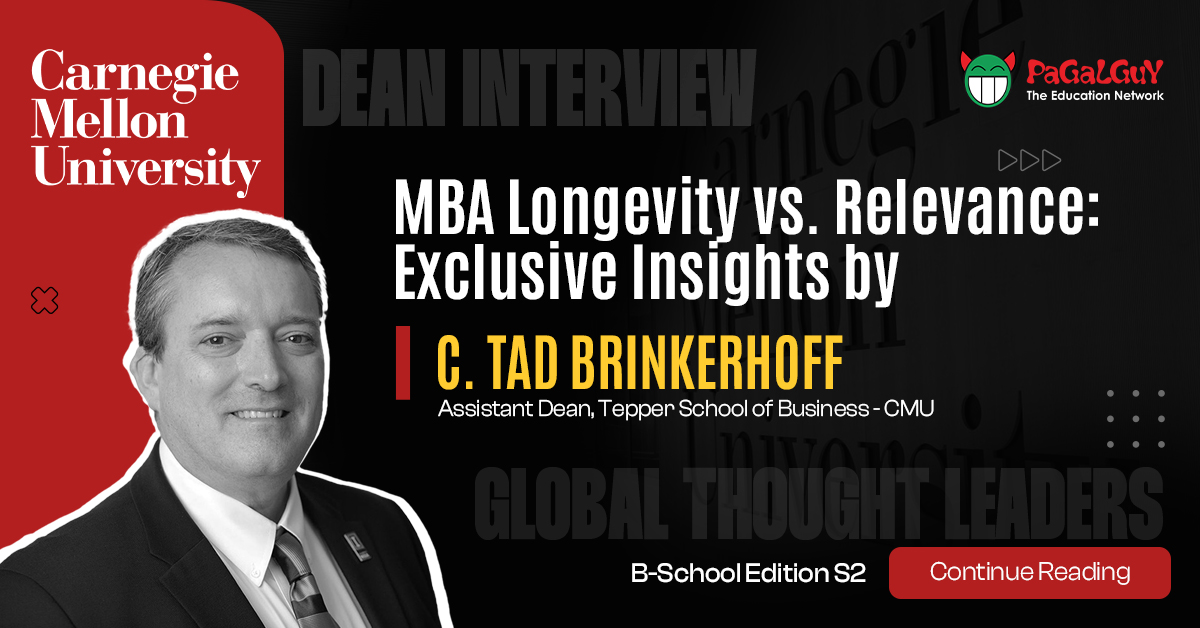
Being a manager is undeniably challenging. In the midst of navigating a volatile`economy, adapting to technological transformations, and recovering from the disruptions caused by the pandemic, managers find themselves shouldering increasingly complex responsibilities. The demand for managers is evolving, with leading organisations now seeking individuals who excel in specific skills, possess innovative thinking, demonstrate diverse leadership capabilities, and surely have a degree of human intuition. In the midst of this ever-changing business environment, business schools are assuming a central and transformative role in moulding MBA professionals for the digital economy.
As part of our recent interview series, “#GlobalThoughtLeaders – B-School Edition,” we delved into a candid conversation with Assistant Dean C. Tad Brinkerhoff of the Tepper School of Business at Carnegie Mellon University, exploring thought-provoking subjects related to the significance of an MBA in today’s corporate landscape, the fundamental skill set required for business expertise, and the considerations for choosing the most suitable MBA programme that aligns with your individual growth aspirations.
Q1: With over 20 years in management education, could you share your academic journey and what inspired you to pursue this path?
Ans: It’s an interesting story that happened quite unexpectedly. I got my MBA and started working for Subaru in Indiana, close to Purdue University. One day, my boss asked me to help out with capstone projects in the School of Engineering, and I found it really enjoyable.
Later on, a software company recruited me, and I ended up attending a conference about exporting software to China. At that conference, a professor from BYU’s Marriott School took an interest in my background. We had a few conversations, and she offered me a job at the business school, which I initially turned down.
But then she asked me about my MBA experience and how I thought the business school could improve. I had some ideas and realised this was a chance to make a difference. So, I applied for the job and spent three years running the international business centre. After that, I took on roles as the main recruiter and director of the Executive MBA Programme.
Later, I moved to Purdue, the University of Missouri, and now Carnegie Mellon. It’s been 22 years, and my main goal has always been to make the business school experience better for students and help them succeed in their careers and personal lives after graduation. That’s been my mantra in higher education.
Q2: We understand that you can speak Japanese, a language often regarded as one of the most challenging to acquire. What prompted you to learn it – Was it driven by corporate interests, academic pursuits, or personal curiosity?
Ans: I grew up in a small rural town and left for volunteer work in South America when I was 19. I spent two years there and learned Spanish, which sparked my interest in languages and cultures. When I returned home and decided to major in Spanish, I knew I wanted to pursue a career in international business. In the early 90s, I entered the world of international business, where I’ve been ever since.
My journey then took me to Japan for a few years, where I initially worked for the Japanese government. While they provided us with some tools for learning, much of my learning was hands-on. I remember vividly spending weeks in Japan, studying how to navigate the post office. I would learn the process and then immediately put it into practice. This immersive approach was crucial to my language learning.
Throughout my career, I’ve primarily focused on international business, and I find it incredibly rewarding to interact with people from 30 different countries on a daily basis. Engaging with Japanese people and diving into their culture has been an amazing experience. Learning Japanese, in particular, has been challenging but also very rewarding. The language is fascinating, and the study process has been quite different from my native culture. It’s been an enjoyable journey that continues to this day.
Q3: As you made the transition from a highly successful corporate career to the educational world, which was led by the question, “What do you like about your MBA, and how can you enhance it?” How did you address this question?
Ans: What was really on my mind was making sure that what we learn in the classroom leads to promising careers. In academia, we often get too caught up in the academic side of things and forget about real-world applications. For me, hands-on learning was vital, and I always strongly focused on ensuring students’ success in their careers.
When I talk to my colleagues, I always stress that our primary goal is to help students succeed in their careers. Another thing I’ve learned over time is that building relationships is a big deal in your career. In our programme, we aim to help engineers create meaningful connections, not just with their classmates but also with other students and alumni. Studies show that these connections, even if they’re not super close, can be really valuable. LinkedIn has looked into this too. So, we put a lot of effort into helping students make and use these connections.
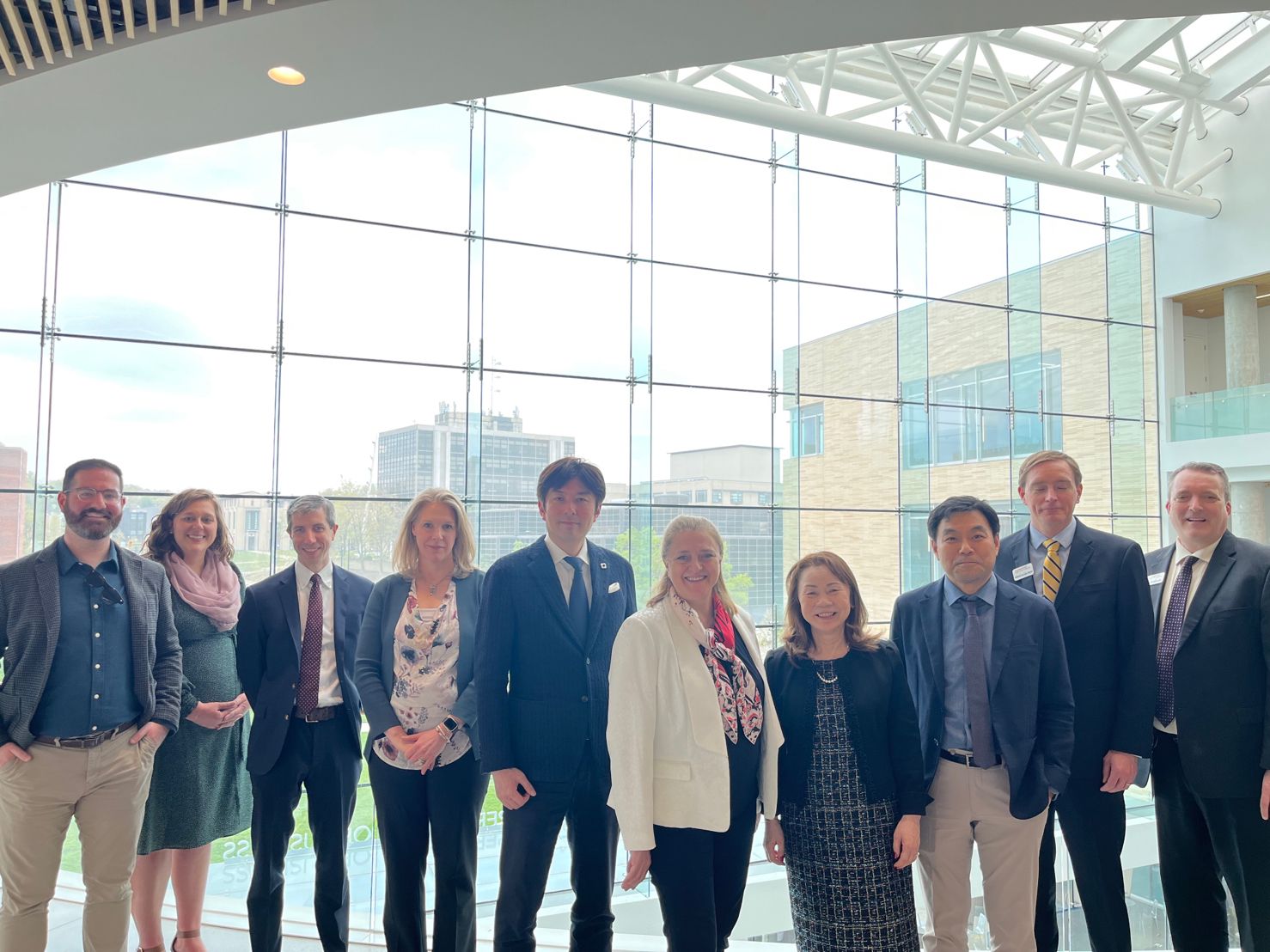
Q4: How does the Tepper School of Business at CMU ensure that its curriculum aligns with the demands of the cutting-edge business world and meets the needs of recruiters?
Ans: That’s an excellent question. In our tenure track system, research holds significant importance for professors. Just being a great teacher might not suffice if your research isn’t in alignment. Fortunately, recent university rankings have started giving more weight to career outcomes, which aligns well with addressing the scepticism Gen Z students often have about the value of higher education. It’s crucial that we communicate the worth of our MBA degree and higher education, emphasising both career success and personal fulfilment. Our institution’s evaluation is based on this value proposition, including what happens to students’ careers once they graduate from our business school.
Q5. As business schools aim to become more career-centric, what advice would you offer regarding the navigation of this shift, involving faculty, administration, and the student community to ensure that MBAs remain a relevant option for recruitment?
Ans: We at CMU focus on helping our students prepare for career changes using data and adjusting our programmes to meet real-world needs. This includes considering how students change careers more often, reduced funding for executive programmes, and the rapid changes in technology and industries.
Our structure supports these changes, making sure we meet the needs of both recruiters and students. Unlike before, we regularly review and update our curriculum to stay competitive and include relevant learning for the future.
Our Dean – Isabelle Bajeux-Besnainou, who has a solid academic background and a global perspective, has supported our proposed changes, both in terms of vision and budget. Her leadership has been vital to our success.
In today’s business world, we can’t wait five years to review our programmes; we need to be more proactive in including all the stakeholders in this conversation, including corporations, innovators or entrepreneurs, alumni, and our faculty, to make us more relevant to the demands of the future.
Q6: How is your institution approaching the integration of a career-centric approach within your MBA programmes to ensure that students are prepared for the corporate world from admissions to placements?
Ans: We’ve developed strong relationships with all our stakeholders, especially through our Director of Career Services, who is part of a network of 30 business schools that allows us to share valuable information. What sets us apart is having a dedicated data expert. We’ve incorporated predictive analytics into our strategy by working closely with data experts to predict trends and adjust our teaching accordingly. We have a strategy committee with active Dean involvement to ensure our approach aligns with the data.
Carnegie Mellon embraces technologies like Chat GPT and integrates them into our curriculum while being transparent about addressing academic integrity concerns. We’re planning a seminar for our online hybrid students to help them maximise the use of such technologies.
In terms of our career focus, we emphasise integration at every stage. We’ve physically merged admissions with the career centre to promote seamless communication. We also share information and successful strategies across programmes, adapting what works from one to another, such as our full-time programme to the online hybrid programme. Our dedicated data expert fine-tunes our programmes using data science, and we hold weekly meetings for continuous improvement.
This philosophy is inspired by my experience working for a Japanese company in Japan, where I learned the importance of making small changes for a big impact. Convincing admissions to merge with the career centre was a significant achievement, resulting in enhanced collaboration and real-time feedback.
Q7: How does CMU ensure the recruitment of students matches course requirements, and how does the feedback loop between admissions and placements enhance the overall career-centric approach?
Ans: We’ve positioned excellent people where needed. The Info’s art director has 20 years of experience, and our Masters’ career centre also boasts two decades. Recently, we brought in a new director of admissions. These individuals share our vision and have successfully merged our offices. It’s not perfect yet, but the progress is encouraging.
The connection between these teams is becoming evident, shedding light on the importance of communication and quantitative skills. We’ve revamped our interview process, asking admissions staff to adopt a corporate recruiting perspective during interviews. This shift has had a noticeable impact. Last year, we achieved a 100% internship placement rate for the first time, though there are still some wrinkles to iron out. Nonetheless, I believe we’re on the right path.
Q8: How do you integrate real-world experiences into your teaching methodology to connect theoretical concepts with practical applications in the classroom?
Ans: In our Tepper programmes, we place a strong emphasis on capstone projects that have close ties to the corporate world, thanks to our extensive alumni network. We make it a requirement for students to engage in a capstone track, and our alumni office collaborates with our corporate relations team to ensure that these projects remain relevant and up-to-date.
Additionally, we provide a “Lunch and Learn with an Alum” programme, allowing students the chance to connect with alumni and stay updated on current industry trends. This semester, we’re expanding this programme virtually to reach even more students. We firmly believe that these initiatives play a crucial role in the success of our programme.
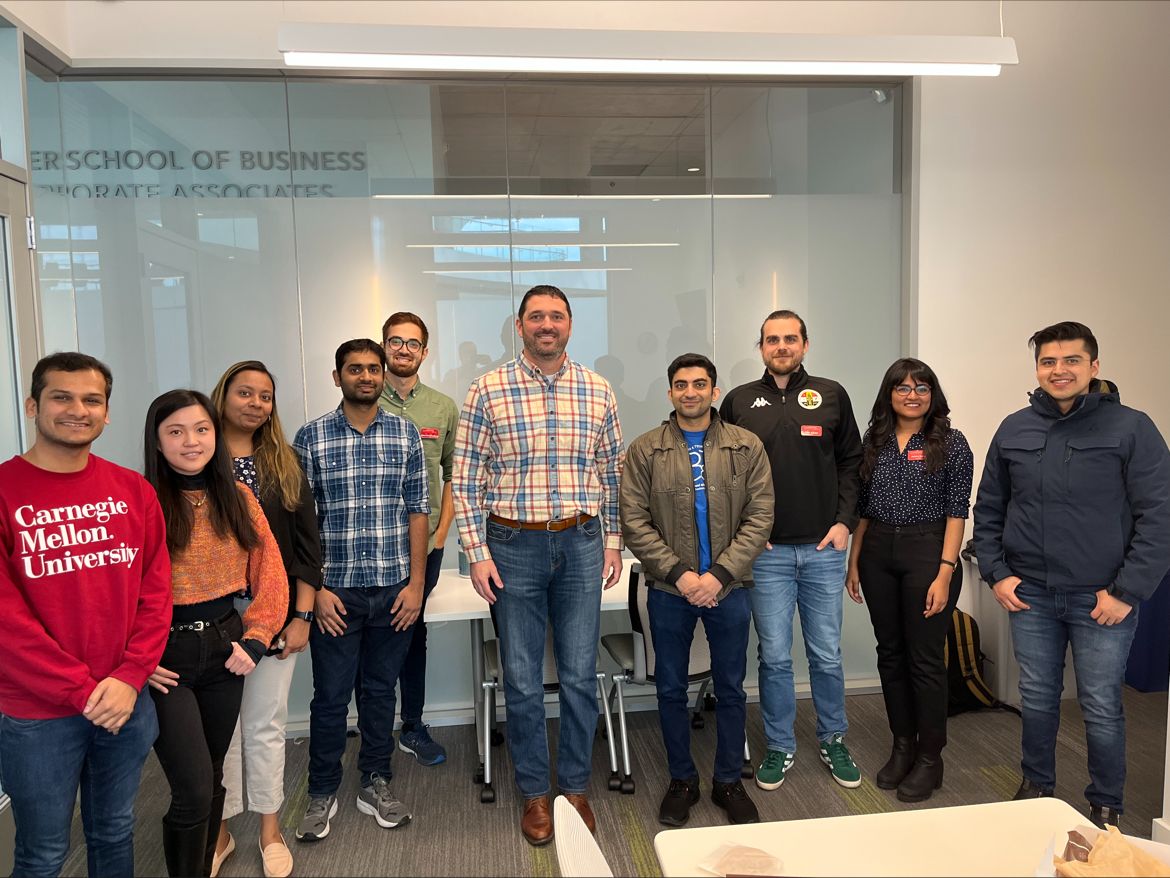
Q9: As a business school, what are your plans for new programme offerings in light of recent shifts towards online and hybrid education, and what is your stance on the current trends advocating for a return to offline methods for better results?
Ans: That’s interesting. We have both a traditional MBA programme and a top-ranked online, hybrid MBA programme, according to the Financial Times. What makes this programme stand out is its online format, with six on-campus weekends each year, allowing students from across the country to participate. These in-person interactions with fellow students and alumni are crucial for success.
Another unique aspect is that the curriculum and faculty are the same for both online and in-person programmes, making it easy to switch between the two formats. However, our online programme takes three years, which is longer than most, but we prioritise maintaining consistency in the curriculum and overall experience.
We’ve successfully applied this model to our Master of Business and Master of Science in Business Analytics programmes. Our full-time MBA programme has seen significant growth, with a diverse student body and a high number of applications. We’re also expanding our offerings, including a Master of Science in Management programme with an MBA option.
While the full-time MBA market might be slowing down, online and MS degree programmes are gaining momentum. Our approach aligns with these industry trends, and our association with Carnegie Mellon ranked second in Business Week, continues to be a valuable asset.
Q10: There has been a notable influx of tech professionals into the US, including many from India, in the past couple of years. We’ve observed the MS-MBA’s growth and its focus on niche areas like science, AI, and machine learning. With 700 applications already, how do you envision this space evolving for both you and the industry?
Ans: Our placements in the tech sector faced challenges this year, leading to a slight decrease in full-time placements compared to the previous year, particularly in the tech industry. However, it’s crucial to recognise that technology is a permanent part of our world, and it’s natural to have ups and downs in this field.
Regarding our programme offerings, we don’t foresee significant changes. We offer various tracks and concentrations, and one noteworthy aspect is that Tepper MBA students have the flexibility to take classes at Carnegie Mellon University, which opens up new avenues for exploration.
We encourage our students to expand their knowledge by taking courses beyond Tepper, especially in areas like AI, where we collaborate on projects with the engineering and computer science schools. While technology is vital and constantly evolving, we also emphasise timeless skills such as human leadership, empathy, and inclusive leadership. These qualities remain essential and serve as the foundation of our Accelerated Leadership Centre. Our objective is to prepare students for successful careers in the coming decades, focusing on technology and leadership.
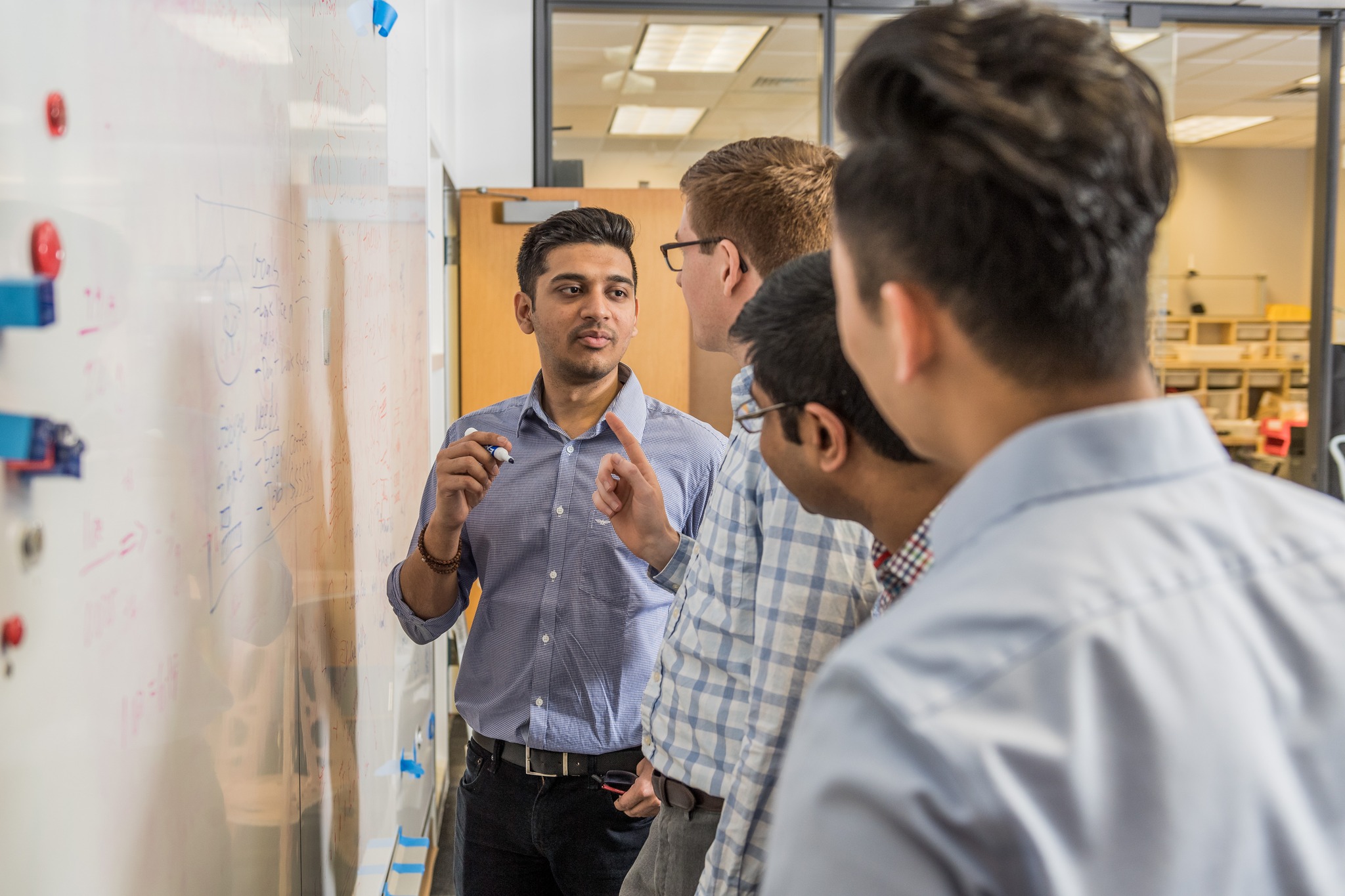
Q11: What qualities do you believe are essential for MBA students to possess, or what qualities do you hope to observe in them to thrive in today’s world?
Ans: I think adaptability is really important. Can individuals adapt to changes, including new technology and working with diverse teams? We place a strong emphasis on inclusive leadership at our institute. Can they work well with a variety of people in a changing environment? To achieve this, self-awareness, empathy, and emotional intelligence are essential.
We’ve launched a programme called “Cultural Humility” to encourage students to approach challenges with humility and respect for others’ viewpoints. They participated in a full-day training session and will continue attending follow-up workshops. This will help enhance our inclusive leadership programme going forward.
Q12: In our discussions with companies, I frequently encounter recurring apprehensions regarding the suitability of recent graduates for real-world job requirements despite their education at business schools. Academic leaders acknowledge this ongoing challenge, yet finding a definitive solution has proven elusive. What are your insights on addressing this pressing concern?
Ans: I’ve come across similar sentiments quite often. Many companies have high expectations for MBA graduates, envisioning them as future CEOs within two years or leading sizable teams of 50 people early in their careers. When these aspirations aren’t met, graduates might feel like they haven’t achieved success.
To some extent, I believe this responsibility falls on us. Our goal is to empower our students and prepare them for leadership roles, which we indeed accomplish. However, at times, I wonder if we unintentionally create unrealistic expectations. I wouldn’t necessarily say we overpromise, but we might inadvertently convey the idea that these positions are automatically guaranteed. It’s worth considering how we can better manage student expectations.
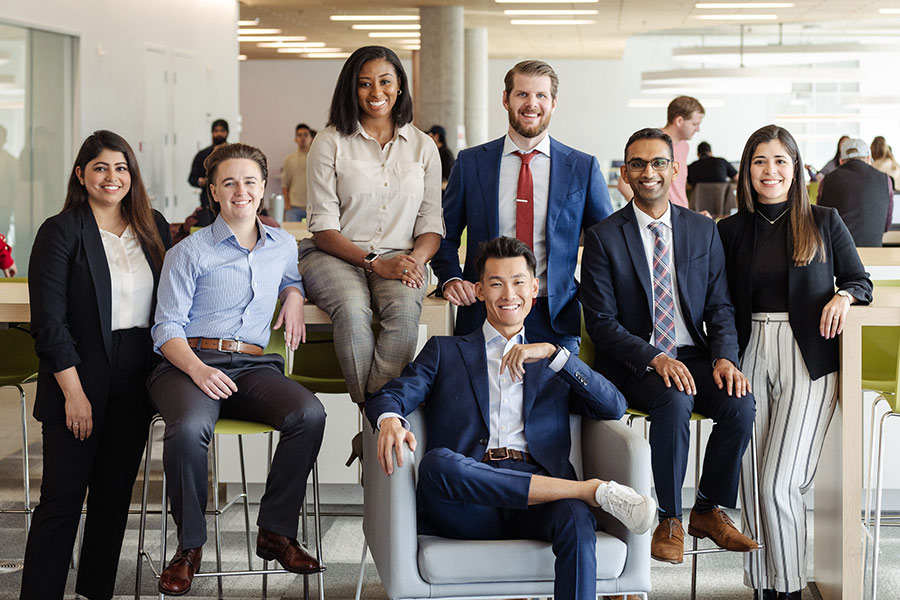
Q13: We are witnessing a cultural shift where it appears that people, regardless of their generation, may not be as diligent in their work as in the past. For instance, in India, students put in tremendous effort to secure admission to schools, but their work ethic often needs to improve once enrolled. What do you believe could be the underlying reasons for this phenomenon?
Ans: I’ve been in this role for 22 years, and we’ve been conducting a student experience survey every year. This year was different because, for the first time, I noticed comments like ‘the curriculum is too challenging,’ ‘the homework load is too much,’ or ‘I need more balance.’ It’s been intriguing to me, and I’m not sure if it’s a reaction to COVID-19, increased mental health stress, or a growing emphasis on well-being. When I was in the MBA programme, nobody ever discussed my mental health or well-being. It was more about the mindset of having 24 hours in a day, so keep pushing forward.
Q14: How does your approach to maintaining a balance between stress and mental well-being among your students, especially within the demanding MBA programme, better equip them to handle the challenges of work life and achieve a sense of balance?
Ans: Our message is clear: We strive to collaborate closely with professors in order to prevent students from experiencing the stress of handling multiple assignments and exams simultaneously, all while upholding the rigorous standards of our program. Our school’s focus on human intelligence and data is in harmony with the principles of Carnegie Mellon University.
Our Dean – Isabelle Bajeux-Besnainou, emphasises that decisions should be driven by human judgement, not solely by data but informed by data, highlighting the significance of human insight, leadership, and empathy. This philosophy guides our selection of leaders, where we value the human aspect of business just as much as quantitative skills.
Our leadership centre, which has been operating for a decade, embodies this perspective by emphasising the importance of considering human factors alongside quantitative metrics in managerial decisions. This approach strikes a balance where quantitative skills play a significant role.
Q15: Can you share practical insights gained from your research-based approaches that have proven effective in tackling real-world challenges through collaborations with top companies?
Ans: Oh, that’s a great question. In our programme, We see that professors lead all our capstones. Unlike some schools I’ve attended in the past, where capstones didn’t involve professors much, this is a distinctive aspect of our programme. In most cases, it’s the professors who come up with and take charge of the projects. They also receive support in this process. However, I think it’s essential for professors to build relationships with individuals at companies, especially when they need to find projects for capstones. This encourages them to stay connected with alumni, especially in specific tracks. We have faculty members assigned to each track, such as energy, for example. For instance, we have a professor deeply involved in energy and sustainability, actively establishing connections with relevant companies. This brings a real-world perspective as they search for and lead projects for students.
All our faculty members are highly committed to ensuring positive outcomes for the companies involved because it’s something we intend to continue. This creates a self-sustaining cycle, but the key lies in having faculty members find, lead, and take responsibility for the project results. It’s an interesting and, in my opinion, a suitable way to provide students with hands-on and valuable experiences.
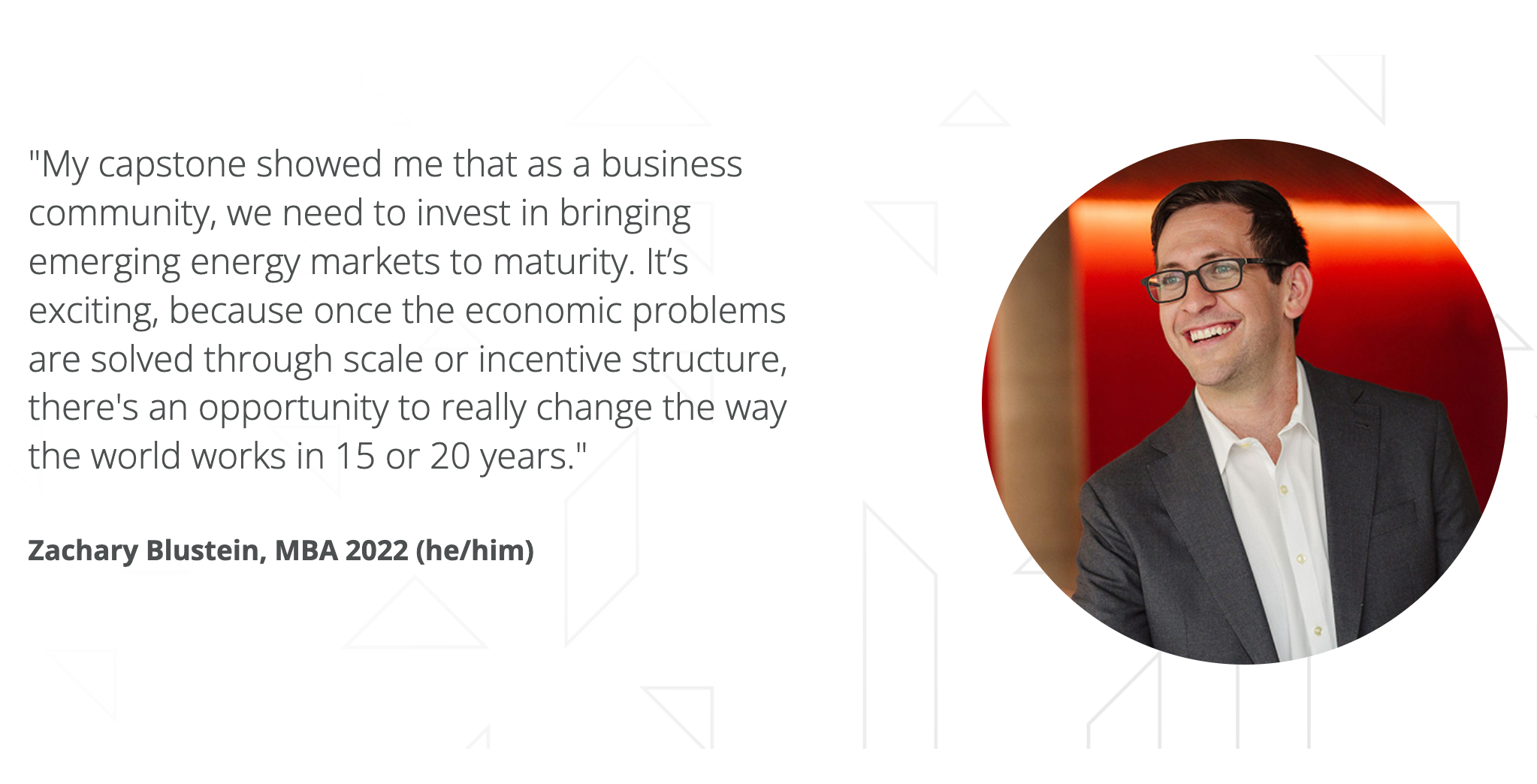
Q16: It’s quite uncommon for professors to initiate their own projects. Companies usually approach the institution with project offers. How is CMU being able to achieve this with Tepper?
Ans: Yes, in most MBA tracks, that’s the process. For example, in the technology track, Tim Derringer takes on this role and is highly involved. To join a track, students need to apply. Tim reviews applications from students interested in the technology track and collaborates with former students to find the right projects for his track.
As for our MSBA students, we have a faculty member responsible for sourcing projects for all students, not just track-specific. It varies depending on the programme. However, for our full-time MBA programme, this is essentially the model we follow, and it has proven to work quite effectively.
Q17. In your perspective, what do you consider the hidden gem of Tepper School of Business, an aspect that many students might not be aware of but should definitely be acquainted with?
Ans: Many students may not fully grasp the value of the Accelerate Leadership programme until they complete it. I remember one student from India who is working on data analytics for the centre, and he admitted that he had no idea about the Leadership Centre’s significance until he began working on the project. Now, he’s planning to engage with the centre daily during his second year.
Additionally, we actively encourage our students to make the most of the abundant resources available at Carnegie Mellon. We want them to explore beyond our own building and venture into other departments, like engineering. In many respects, CMU is a hidden gem, and we strongly believe that our students can greatly benefit from tapping into all it has to offer.
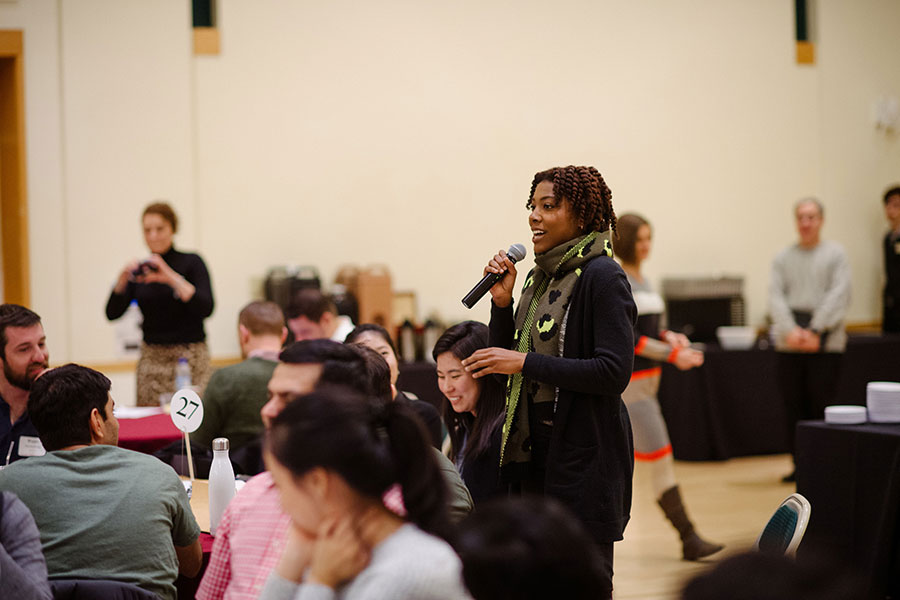
Q18. Any advice for Indian MBA aspirants who are looking forward to applying for Tepper MBA in 2023?
Ans: A year ago, we introduced OKRs (Objectives & Key Results) as part of our strategy to enhance career outcomes for our students. We made sure that our key results were closely tied to this objective. For instance, we linked our admissions process to the identification of candidates with clear career goals and strong relationship-building skills. We’re on the lookout for students who have the potential to excel in achieving their career goals.
We’ve adopted the approach of starting the admissions process with the end goal in mind. We admit students who can effectively articulate their aspirations and explain how Carnegie Mellon University will play a role in supporting them. This represents our long-term strategy for simplifying the admissions process and keeping it focused on producing positive outcomes.
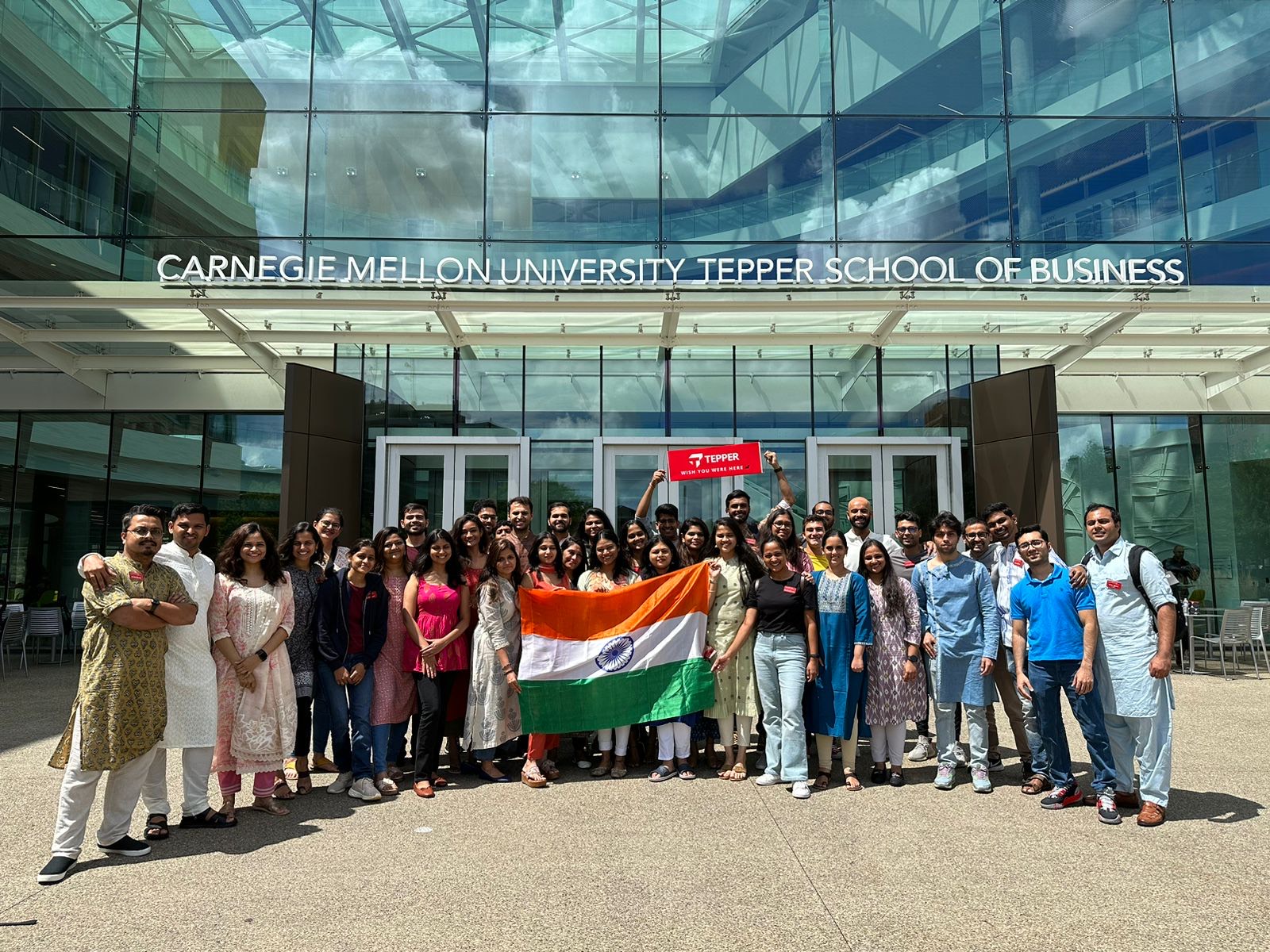
Q19. What’s your vision for the continued growth and success of the Tepper MBA programme?
Ans: Our primary focus should be on maintaining the integrity of our structure and emphasising the importance of our key objectives. It’s worth noting that our full-time MBA programme may experience a slight reduction in size, while our MS or online programmes are likely to expand. Nevertheless, our goal remains consistent: to provide similar programming across all formats without compromising the quality of our online programmes. We aim to ensure that the online student experience mirrors that of a full-time student.
This vision aligns with our Dean’s vision, and we are committed to upholding it while being mindful of the student experience at every stage of the programme, from admission to graduation. We are dedicated to maintaining a high-touch approach throughout the programme, even if our MBA student numbers are relatively smaller (around 150 to 200 students) compared to some other schools with larger cohorts (800 to 1000 students). Our smaller size allows us to focus on building strong relationships that lead to long-term career success. As long as we continue to add and effectively communicate this value, we will ensure our continued existence.
Q20. How is Pittsburgh in terms of the kind of environment it offers for MBA students?
Ans: Pittsburgh may not be New York or San Francisco, but it’s a distinctive city with a fascinating history. It was once a significant industrial hub but successfully transformed itself during the 70s and 80s. This serves as an excellent illustration of how students will need to adapt as industries continue to evolve. Pittsburgh, with its rich history of reinvention, offers numerous opportunities, including access to Carnegie Mellon University, a globally renowned institution for technology and healthcare education. It’s an ideal place to learn the skills of adaptation and reinvention.

To access the full interview, visit our YouTube Channel – Subscribe Now.
To learn more about the vibrant business community at CMU and dive deeper into the Tepper School of Business – MBA experience, check out this informative video!
Thank you, dear readers, for your incredible support and enthusiasm for this interview. We’re thrilled to have you engaged on PG, and there’s more exciting content coming your way. Be sure to stay active on our platform for more captivating reads, and don’t forget to check out our recent articles here. Happy reading!
